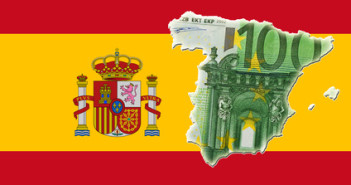The downturn in the Spanish economy is evident in rising unemployment, that reached 22.8%. Some thought that the euro-zone’s fourth largest economy will enjoy some mercy during the festive Christmas shopping season.Â
Yet there are many signs that point to the other direction.
- People celebrating on the streets, but not in shops: The streets of cities and towns were lit up with festive Christmas lights from the beginning of December. Shops opened on Sundays during this month. Street dancers and special activities for children were widespread. This gave an impression that life remains good, or at least that “there is no crisis in Christmasâ€. Yet activity in shops remained slow – most people just stayed outside the shops.
- Early discounts: Spain’s holiday season ends after the “Dia de los reyes†– the Day of the Kings on January 6th. This marks the beginning of the sales season. Yet some shops already cut prices before Christmas, and others joined after Christmas but before January 6th.
- Shops working on Christmas day: For a country famous for its afternoon naps (“siestaâ€), seeing shops open on Christmas day, which was a Sunday, is quite rare and shows another sign of the downturn.
- No early paychecks: Employers often bring forward salary payments for the month of December, providing workers with more cash to spend before the holidays. With so many authorities being late on payments, bringing forward paychecks proved too hard. This curbed spending.
All this doesn’t bode well for the struggling Spanish economy, which didn’t grow in Q3 and probably contracted in Q4. After the festive lights will be removed from the streets, huge discounts are expected in shops. Were Spaniards saving for the big sales season? This isn’t certain.
Spain’s new Prime Minister, Mariano Rajoy, has a tough task of reviving the economy. According to some reports, he already negotiated aid with Merkel.
In the meantime, Spanish yields are significantly lower than Italian ones, and Spain remains out of the spotlight, at least for now.



